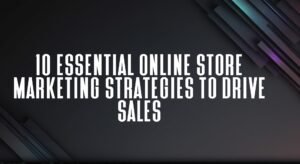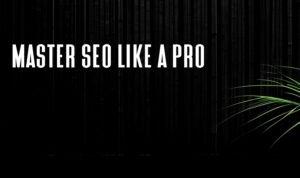Key Takeaways
- E-E-A-T is short for Experience, Expertise, Authoritativeness, and Trustworthiness. Google utilizes this framework to measure the quality of content.
- Experience is first-hand knowledge or skill about a subject, which makes your content more credible.
- Expertise entails displaying a depth of knowledge regarding a specific area, typically through a qualification or a professional background.
- At some point during your writing career, you’ll need to stop being an outlier and truly become an authority.
- Trustworthiness is about instilling user confidence through transparency, accuracy, and integrity in your content.
- To strengthen your E-E-A-T, produce excellent content. Also, display your credentials and maintain your brand voice, honest and consistent.
When you read about Google’s E-E-A-T, this is what it means. It stands for Experience, Expertise, Authoritativeness, and Trustworthiness.
We all love juicy content that hits the mark, don’t we? Google uses E-E-A-T to measure whether content stacks up. It’s like a quality check to ensure stuff you read is tip-top and reliable.
You wanna write killer content? Focus on these four pillars. Make your words pop with know-how; keep it real and trustworthy. This isn’t just some fancy words – it’s about actual value.
It’s like your best mate giving you solid advice. Develop content that glistens with authority and trust. Nail this, and your readers will love you for it.
Got it? Let’s take a closer look at E-E-A-T and how it can help you dominate content creation.
Understanding Google E-E-A-T
Google’s E-E-A-T stands for Experience, Expertise, Authoritativeness, and Trustworthiness. It’s huge in Google’s algorithm — the way that content quality is defined. Why should it matter to content creators like you and me?
E-E-A-T is how Google assesses the trustworthiness and credibility of content. This factor plays a big role in ranking content highly in search results. Trustworthiness comes first, as this is the most significant element mentioned in Google’s Quality Rater Guidelines. When your site is accurate, honest, safe, and reliable, Google sees it as trustworthy. This trust equates to an increased likelihood of earning high search rankings in 2024.
What E-E-A-T Is Not
E-E-A-T is not about keywords. Keywords matter, but if you focus too heavily on them, you won’t necessarily ace E-E-A-T. Unlike many other SEO metrics where you’re focused on the technical aspects of SEO, E-E-A-T is all about quality.
It’s frequently confused with things like backlinks and page speed, but that doesn’t fully represent what it is. Your site may load quickly, but that’s not enough. If your content doesn’t have credibility or expert insight, you’re missing the E-E-A-T standards.
You need to be aware that E-E-A-T is really about the quality and credibility of your content. It’s more than just keywords or links.
Why E-E-A-T Is Important
E-E-A-T has a lot to do with user trust and satisfaction. When people are searching for info, they want to turn up trusted, expert-backed content. By prioritizing E-E-A-T, we can build our content to deliver on these expectations — and in doing so, we increase our visibility.
E-E-A-T does not directly affect rankings, but it significantly contributes to user engagement and satisfaction. These factors are critical for ranking in searches. In this age of rampant misinformation, E-E-A-T is highly valuable.
This update helps users identify trusted content and dodge fluff. That’s why Google’s March 2024 Core Update wiped out tons of sites filled with AI-generated content. This shift points to the increasing relevance of E-E-A-T, and we must focus on it to gain the upper hand.
Core Elements of E-E-A-T
Understanding Google’s E-E-A-T (Experience, Expertise, Authoritativeness, Trustworthiness) provides you with priceless information. With this knowledge, you can improve the quality of your content. Let’s look at each piece and how they help your work sparkle.
Experience
Experience is about proving you know your stuff because you’ve lived it. It’s like when you tell a personal story or share a case study that demonstrates your firsthand experience. Google cares about this because it means you’re giving trustworthy advice.
For example, let’s say there’s a travel blogger who writes about hiking trails they’ve gone hiking on. Their firsthand stories render the content real and reliable. You should share personal insights where you can to make your content seem more real.
Expertise
Expertise is a badge that reads, “I know what I’m talking about.” You can demonstrate this with your education, your qualifications, or with experts. Perhaps you have a degree in the subject or have worked with someone who does.
It’s this depth of knowledge that makes your content solid and reliable. Google likes this because it demonstrates you’re not winging it. You have the credentials to back up your claims.
Authoritativeness
Being authoritative is all about getting people to see you as the place to go. You can do this by writing guest posts for well-known sites or getting backlinks from respected sources. It’s kind of like if a chef is mentioned in a leading food magazine—that gives them authority.
A well-organized website also helps because it makes your content easy to trust. Google uses these signals to decide if you are someone worth listening to.
Trustworthiness
Trustworthiness is all about being open and honest. People trust you more if you’re transparent and your website is secure (think HTTPS). Using testimonials and reviews is key—remember, only 14% of folks trust brands as much as they trust other users’ reviews.
If you can show you’re trustworthy, people are more likely to stick around. Google wants to make sure users feel safe with your content, just like how you trust a friend’s movie recommendation over an ad.
|
Element |
Contribution to Content Quality |
|---|---|
|
Experience |
Provides firsthand insights that enhance credibility. |
|
Expertise |
Demonstrates deep knowledge and authority on the subject. |
|
Authoritativeness |
Establishes the source as reliable and respected in the field. |
|
Trustworthiness |
Builds confidence through honesty, transparency, and security. |
These elements don’t work in isolation — they’re pieces of the puzzle. They work together to produce content that is not only of high quality but also user- and search engine-friendly.
Google prioritizes E-E-A-T to align content with user needs. It uses Rater data to make its algorithms continuously better. So, when you’re creating content, consider how these elements can enhance what you’re doing and how they can make you a star.
Building and Demonstrating E-E-A-T
It’s all about building strong E-E-A-T (Experience, Expertise, Authoritativeness, and Trustworthiness). It enables anyone to build an effective presence online. So let’s go over some actionable steps to make this happen.
First, focus on crafting high-quality, informative content. Use real-life examples, your own photos, and your own unique insights. This demonstrates first-hand experience—something Google’s Quality Raters are interested in.
Next, keep learning to stay on top of your field. Whether it’s through online courses, workshops, or attending industry events, continual growth helps maintain and enhance your expertise.
Lastly, make sure your branding stays consistent across all platforms. This consistency boosts your authority and develops trust with your readers.
1. Gain and Show Experience
Document your journey through blogs or articles. Share stories, anecdotes, and experiences that highlight real-world applications. For example, if you’re a travel blogger, utilize your own photos and firsthand accounts from the places you’ve visited.
This shows experience and provides unique insights that your audience will find valuable. Attending industry events is also a powerful way to gain experience. It allows you to network, learn, and then share this new knowledge with your audience later.
Create content that demonstrates practical knowledge so people know you’re not just knowledgeable but experienced as well.
2. Develop and Display Expertise
In-depth guides or whitepapers can go a long way to demonstrate expertise. These in-depth pieces of content can be a great resource for your audience. They showcase your deep understanding of the topic.
You can even do public speaking or webinars to share your knowledge. This enhances your reputation and demonstrates that others in your industry view you as an expert.
Keep learning and ensuring your expertise is current, as Google’s Quality Raters are looking for up-to-date information here.
3. Establish and Exhibit Authority
Look into collaborations with other brands or influencers. This can give a huge boost to your authority because it associates you with people who are already well-respected in your niche.
Publishing research or data-driven content makes you a thought leader. It shows that you’ve done the homework to back up your statements.
Additionally, contribute to industry forums to build your visibility and authority. Participating in the conversation in your industry further establishes your authority as a voice.
4. Enhance and Prove Trustworthiness
Trust signals such as clear privacy policies and easy-to-find contact information are important.
Make a checklist to ensure these elements are present. Answer user questions and feedback in a timely manner to establish trust, showing your audience you value their opinions.
Transparency in your content creation process also improves trustworthiness. Showing how you gathered your information or why you chose specific sources adds layers of credibility.
Levels of E-E-A-T in Search Guidelines
Google’s E-E-A-T—Experience, Expertise, Authoritativeness, Trustworthiness—are foundational to content quality. These are guideposts along the way. They let search evaluators determine how well a piece of content meets user needs. Here, I’ll break down the levels, so you know what to shoot for.
Lowest Level of E-E-A-T
Content at the lowest E-E-A-T level is always vague and lacks credibility. It doesn’t typically provide much value or insight due to a lack of evidence or expertise. Picture a blog post about health tips. If it doesn’t offer credible information, I would classify that as low E-E-A-T.
This type of content churns users, decreasing trust and engagement. To make your content better, add credible sources, expert quotes, and factual data. This builds the trust Google loves so much.
Make sure your content serves a purpose and is backed up with research to climb the E-E-A-T ladder.
Lacking Level of E-E-A-T
Content with a low E-E-A-T level shows an effort to do so, but it falls short. Users may find the information helpful but lack depth or the use of reputable references. A common pitfall here is the lack of first-hand experience or reviews.
To take content above this level, you might include specific examples or case studies. These can help showcase your authority and enhance user trust.
Make sure it is clear and accurate, and follow Google’s Helpful Content Update. This update reinforces the need to provide value and avoid fluff.
High Level of E-E-A-T
Content with a high E-E-A-T level exhibits an air of authority and trust. It typically involves expert opinions, thorough analysis, and solid evidence. High E-E-A-T content leads to more traffic and user trust.
For example, a well-researched article that cites credible sources can engage users and rank well. Stay high quality; keep everything fresh and useful for the user.
Periodically, review and update the content with new information to keep it relevant.
Very High Level of E-E-A-T
To get to a very high E-E-A-T level, your content has to be super. It has to prove indispensable expertise and trustworthiness. Trustworthiness is a major factor here, so fact-checking and verification of credentials (such as peer-reviewed research) are more important.
In addition, content at this level tends to rank better in search, which provides an advantage. For example, a product review with detailed comparisons and user testimonials may be more successful than others.
To maintain this high level, constantly innovate and develop your content. Monitor user feedback and industry trends to stay ahead.
Practical Strategies to Enhance E-E-A-T
Strengthening E-E-A-T (short for Experience, Expertise, Authoritativeness, and Trustworthiness) is crucial for how Google views your site. Let’s dive into some practical strategies to make your content stand out:
- Collaborate with experts to enrich content authority.
- Use social media to amplify your reach and credibility.
- Regularly audit your content to make sure you’re aligned with E-E-A-T.
Utilize Experts and First-Hand Knowledge
Bringing expert voices into your content can boost its credibility. Conduct interviews or add quotes from industry professionals. This not only gives weight to your material but also provides a new perspective.
It’s really great if you share your own personal experiences. If you go to a hotel and take snapshots of your travels, it makes it more personal. Diversity in perspectives, such as different experts with different viewpoints, makes your content more thorough and compelling.
Offer Unique Value in Content
What can you put in your content to make it different enough to stand out? Original research or unique data not only makes your content more valuable, but it also differentiates it from the competition.
Your goal should always be to answer user questions using content that is highly useful and relevant.
Build a Positive Brand Image
Create a checklist of actions to maintain a positive brand image. Connect with your community, so you can be perceived as a brand because of this interaction.
Transparency and ethical practices build trust. This means clearly communicating your mission and values and addressing any concerns openly.
Expand Beyond Traditional Media
Try new content formats, such as podcasts or videos, in order to attract broader audiences. Collaborating with influencers allows you to leverage new media outlets, increasing your reach.
Social platforms go beyond traditional media. They offer a more interactive method for you to engage your audience.
Highlight Content Creators and Their Expertise
Showcase bios or profiles of your content creators for social proof. Highlight their credentials and experiences — this helps earn trust among your audience.
Sharing the success stories of your creators can also help increase the perceived credibility of your content.
Gain Media Coverage for Brand and Experts
To attract media coverage, you may use methods such as press releases. You can also build relationships with journalists and media outlets more broadly.
Provide newsworthy content in line with what’s trending to get the attention of reporters.
Improve the About Us Section
Updating the About Us section to clearly show expertise and authority may help build trust. Add profiles of team members so your organization becomes more approachable and trustworthy.
Be open and honest about your mission and your values.
Showcase Business Trust Indicators
Check off trust indicators like certifications and awards to reassure visitors. Showcase customer testimonials next to pitches to build even more trust.
An active presence on review platforms can also build your trust, as it demonstrates your commitment to customer feedback.
Reference Reliable Sources in Content
A great way to support your claims and provide additional trust is to link to credible sites. Reputable academic studies or industry reports are phenomenal sources to help reinforce your content arguments.
Keep a list of trusted sources for future reference.
Use Original Visual Content
Your content will be much more attractive with original images or graphics. Designing infographics is an excellent way to clarify complicated information.
Video content is a great way to keep users interested and deliver messages effectively.
Regularly Update Your Content
Keep your content updated regularly. Here are some best practices:
- Check facts regularly to ensure accuracy.
- Set a schedule for reviewing and refreshing your content.
- Keep an eye on industry trends to ensure your content remains relevant and valuable.
Conclusion
Okay, people, time to call it a day. Google E-E-A-T—Expertise, Experience, Authoritativeness, and Trustworthiness—ain’t just buzzwords. They’re your ticket to better search rankings. You gotta show your stuff. Teach people, show your audience your real-world skills, and earn their trust through actually being real. Content that speaks to folks, that’s the magic sauce. So go out there, tweak your site, engage your audience, and dazzle.
Want to take your content to the next level? Get started today. Examine your site with new eyes. Make it real. Make it mean something. If you’ve got questions or want to explore this further, we’re here to help. Reach out, and let’s talk. You got this!
Frequently Asked Questions
What does E-E-A-T stand for in Google terms?
E-E-A-T stands for Experience, Expertise, Authoritativeness, and Trustworthiness. It’s a guideline for how Google evaluates the quality and credibility of web content.
Why is E-E-A-T important for SEO?
E-E-A-T is important because it impacts search rankings. High E-E-A-T signals to Google that your content is trustworthy and useful, which can lead to better visibility and user trust.
How can I demonstrate E-E-A-T on my website?
Display credentials; you can link to authoritative sources, and you can keep things accurate and current. Connect with your audience, and emphasize real-world experience and expertise.
What are the core elements of E-E-A-T?
The core elements consist of demonstrating experience, showcasing expertise, establishing authority, and building trust. These components inform how Google assesses content quality.
How do search guidelines use E-E-A-T levels?
Search guidelines utilize E-E-A-T levels to evaluate content quality. The higher the level, the more credible the content; thus, it ranks better in search.
What strategies can enhance E-E-A-T?
Beef up E-E-A-T by including great content, linking to trustworthy websites, and keeping your site fresh. Emphasize author credentials and user reviews.
Can E-E-A-T affect my Google ranking directly?
E-E-A-T affects how Google evaluates content quality. Strong E-E-A-T can increase your site’s perceived value and ranking potential.





